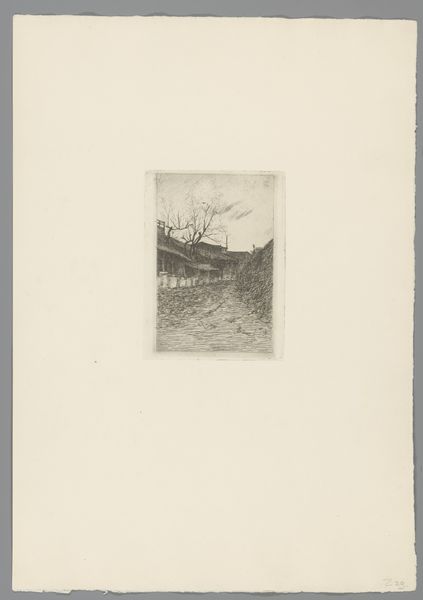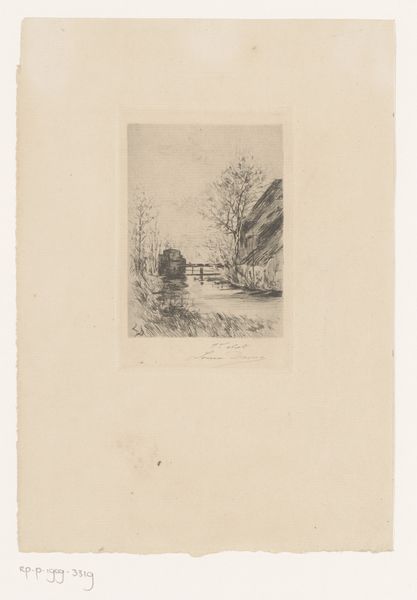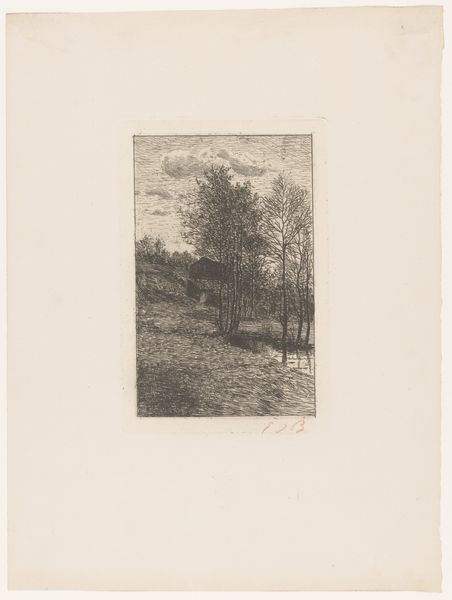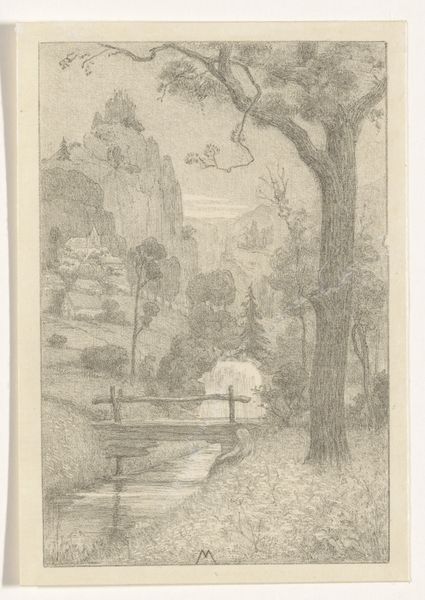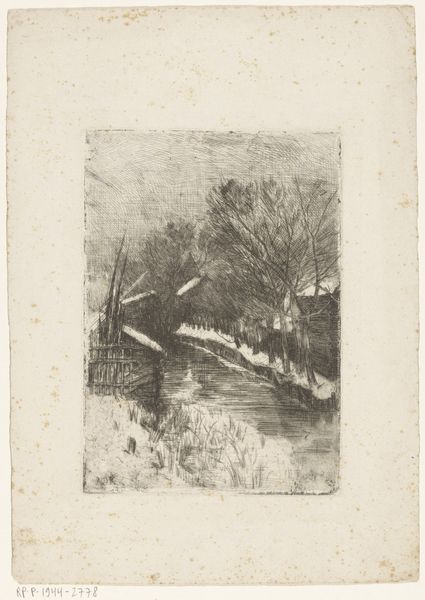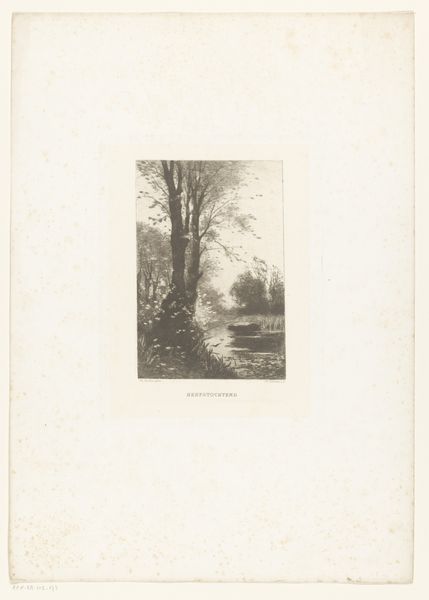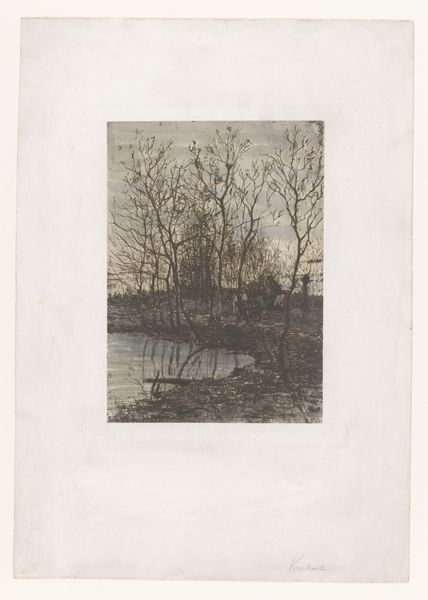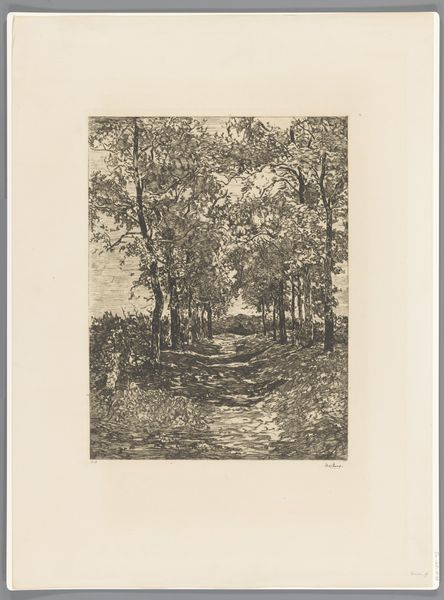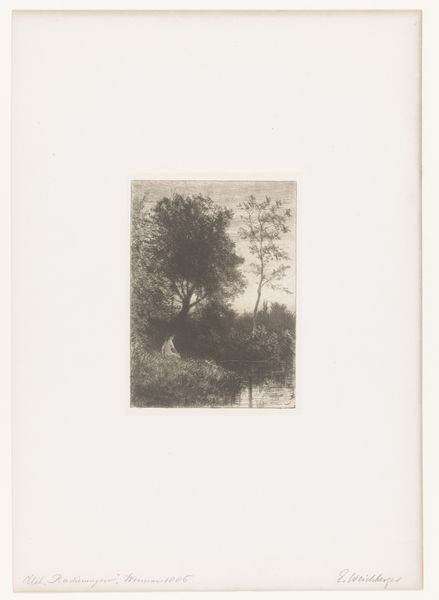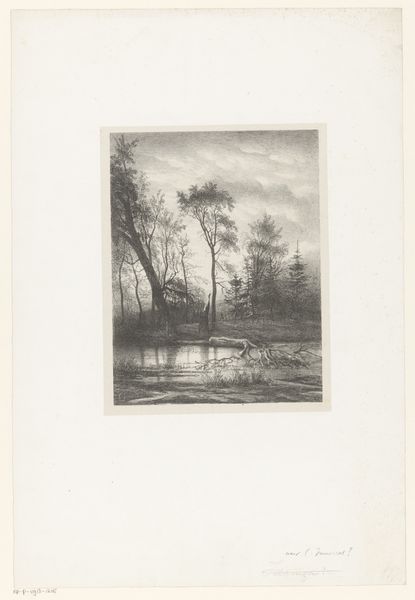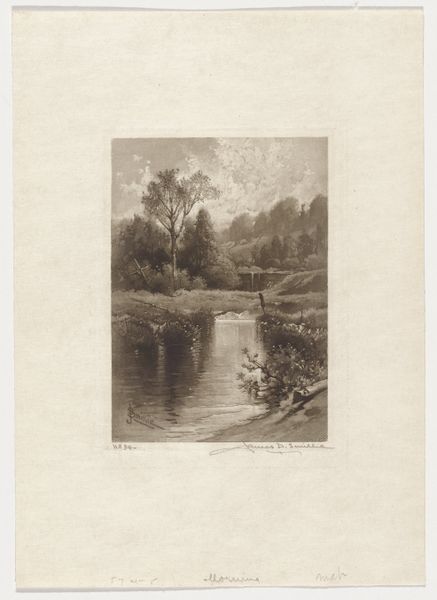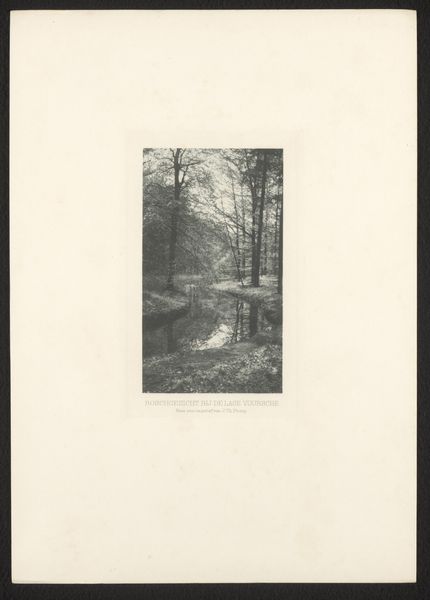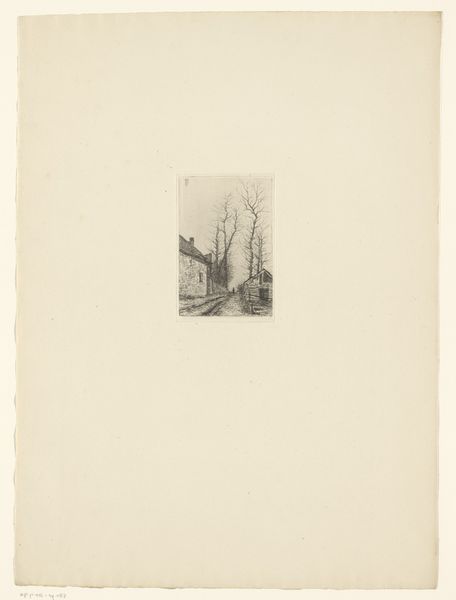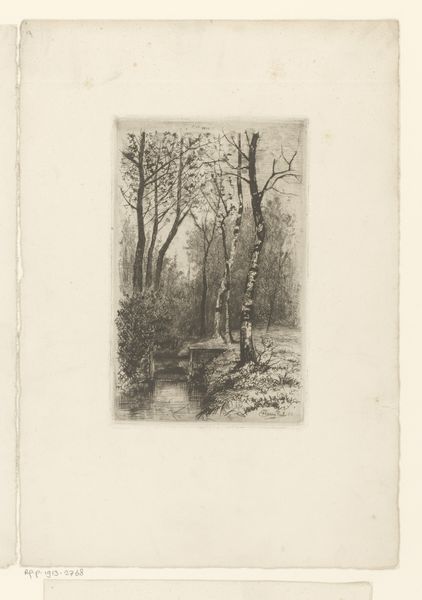
print, etching
# print
#
impressionism
#
etching
#
landscape
Dimensions: height 288 mm, width 179 mm
Copyright: Rijks Museum: Open Domain
Philip Zilcken made this etching, "Woman Sitting by a Brook Near a Bridge," likely around the turn of the 20th century. The subtle tonal range of the image owes itself to the etching process, which involves drawing into a waxy ground on a metal plate, then bathing it in acid. The longer the acid is left to do its work, the deeper the lines, and the darker the resulting printed mark. Note the woman hunched by the water's edge. Etching was embraced by artists interested in everyday life. It allowed for a kind of directness, a contrast with the grand statements made in painting or sculpture. The medium itself is not particularly labor intensive – more like drawing than carving. Yet the level of detail Zilcken achieved gives a palpable sense of the scene before him, and the labor of the woman in it. So, next time you encounter an etching, remember that its apparent simplicity often belies a complex interplay of material, process, and social observation.
Comments
No comments
Be the first to comment and join the conversation on the ultimate creative platform.
